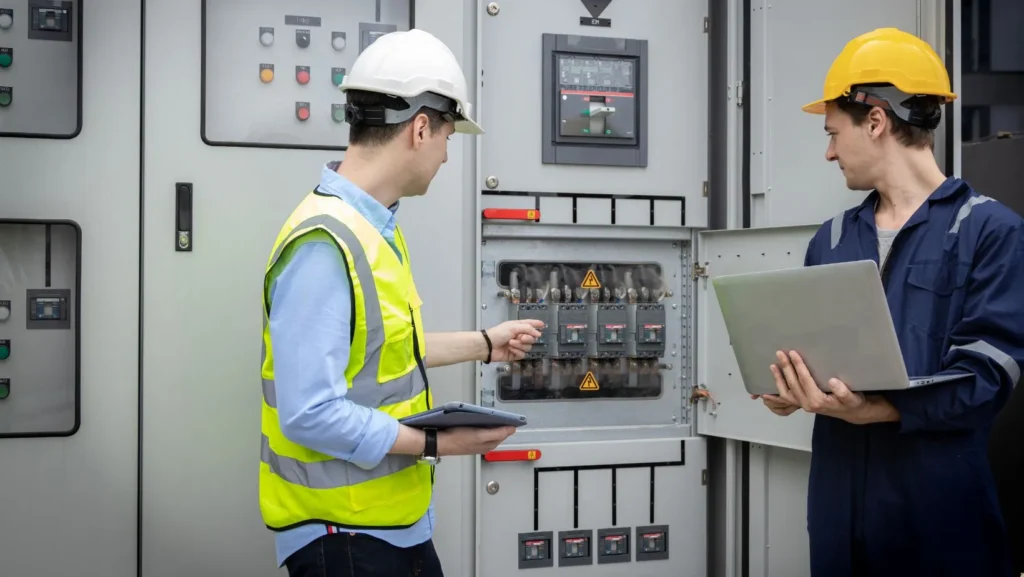Below are the learning outcomes for each of the study units in the ICTQual Level 3 Diploma in Electrical Engineering program:
1. Fundamentals of Electrical Engineering
By the end of this unit, students will be able to:
- Understand and apply the basic concepts of electrical engineering, including voltage, current, resistance, and power.
- Use Ohm’s Law to calculate values in electrical circuits.
- Differentiate between series, parallel, and compound circuits and explain their applications.
- Interpret electrical symbols and schematic diagrams used in electrical systems.
- Analyze and work with both AC and DC electrical circuits.
2. Electrical Wiring and Installation Techniques
Upon completing this unit, students will be able to:
- Install basic electrical systems, including switches, sockets, and lighting fixtures, in residential and commercial settings.
- Apply wiring regulations and safety standards (e.g., IET Wiring Regulations) in electrical installations.
- Select and install appropriate circuit protection devices, such as fuses and circuit breakers.
- Demonstrate proficiency in installing wiring systems and ensuring their compliance with industry standards.
- Safely handle and install electrical components while ensuring safe operation.
3. Electrical Maintenance and Fault Diagnosis
After completing this unit, students will be able to:
- Diagnose faults in electrical systems using appropriate tools and techniques.
- Perform maintenance on electrical systems and equipment in both industrial and commercial environments.
- Test and troubleshoot components like motors, transformers, and wiring to identify faults.
- Implement safe working practices when dealing with electrical faults and repairs.
- Develop and apply strategies for maintaining electrical systems to ensure optimal performance and safety.
4. Control Systems and Automation
Upon completion of this unit, students will be able to:
- Understand the basic principles of control systems and automation technologies.
- Identify and use key components in electrical control systems (e.g., PLCs, relays, sensors).
- Design and implement basic electrical control systems for industrial applications.
- Interpret and create electrical control diagrams and schematics.
- Troubleshoot and maintain automated systems in real-world scenarios.
5. Electrical Machines and Motors
By the end of this unit, students will be able to:
- Understand the working principles of different types of electrical motors (AC and DC).
- Select, install, and maintain electric motors for various applications.
- Troubleshoot and repair faults in electrical machines and motors.
- Understand and apply speed control methods for electrical motors.
- Work with transformers and their role in electrical power distribution.
6. Sustainable Energy and Green Technologies
Upon completing this unit, students will be able to:
- Understand the fundamentals of renewable energy sources, such as solar, wind, and hydro power.
- Install and maintain renewable energy systems, including solar panels and wind turbines.
- Integrate renewable energy solutions into existing electrical grids.
- Understand energy storage solutions and their applications.
- Apply energy efficiency practices to minimize environmental impact in electrical systems.

